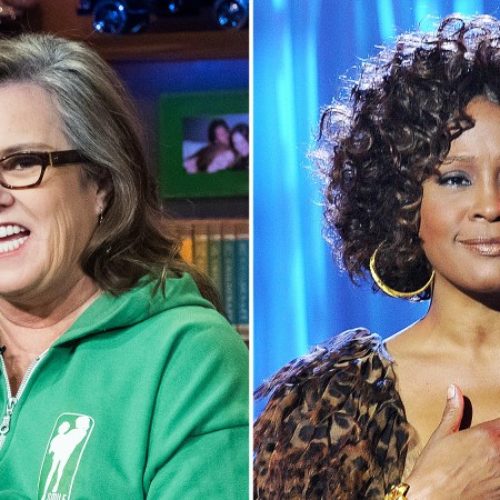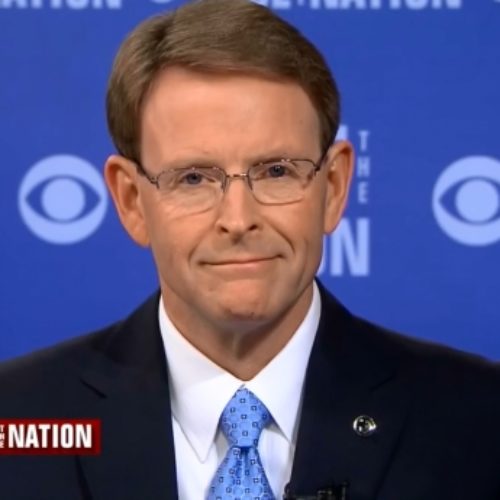The Gay Indian Film, ‘Loev’, Aims to Start a Nuanced Conversation About Rape
Sexual tension pervades Loev, the 95-minute film set in India that debuted last week on Netflix tracing a weekend long road trip of two old friends. In defiance of the Indian Penal code Section 377, which effectively criminalizes homosexuality, the film depicts the relationship between a trio of boyfriends and lovers.
And though the film features only one woman, director Sudhanshu Saria finds that because of its intricacies, women can discover a deeper connection to Loev than even some of the gay men watching.
“India is the capital of marital rape,” Saria told OUT. “So in screenings, women connect and react way more strongly than men do.” In particular, a moment of connection comes at what could be considered the film’s climax: the feature’s two main characters, Jai and Sahil, are fighting in a moment that turns to intercourse.
“I wanted to tread the line,” Saria said of the scene which was filmed multiple times, all in 17-minute takes with no cuts. “I wanted those who wanted to see it as rape to be able to find that evidence in it, for those who didn’t want to, they could find that evidence in it, and those who wanted to see it as a kind or an excuse for infidelity, could find that evidence.”
The scene took up two of the entire project’s 16 days of filming, and while both pivotal and conflicting, it was nuanced, as is life.
According to a 2014 study, 38 percent of rape victims are male. That statistic was brought to the surface in a new documentary, The Voiceless, by Vanessa McNeal, as well as with Zeke Thomas’s story about being a victim of date rape. But for the viewers of Loev, the occurrence is a bit of subterfuge; you want a payoff for all of the sexual tension that’s accrued throughout the film, but this is not how you wanted it.
“I didn’t want to make a movie where you knew what happened, where you knew who was at fault, where you knew who screwed up,” Saria said. That sort of clear-cut, “good guy, bad guy; this was right, this was wrong,” scene isn’t reflective of how life operates, which is frequently in the greys of the world, more so than the black and white.
“There were takes where [Jai] was too aggressive, where he wasn’t aggressive enough, where Sahil pushed back too much where he didn’t push back enough,” Saria said. “I wanted to make sure there was enough that you could forgive him, enough that you couldn’t. I’m only in it for discussion, not approval.”
But viewers had differing opinions on how he should have handled the situation. Increasingly, in large part due to social media, there has become only one way to talk about certain issues. Instead of a plurality of voices and thoughts, instead of conversation, there are to be edicts, mantras repeated over and over, typically lacking nuance and often glazing over the intricacies of individual circumstances.
“It became clear they wanted me to say out loud, ‘Rape is bad,’ and it’s like, ‘Really? Yes, rape is bad,’” Saria said. “But what is the need to make the movie that says this guy is an asshole and this guy is a victim? What’s the need?”
Instead, Saria finds a need to portray situations that are not as cut and dry in order to spark conversations about those—a discussion wherein even the participants may still be unclear about what occurred.
And as real life victims frequently find themselves in that exact situation, isn’t there a need for that?
About author
You might also like
Rosie O’Donnell Claims She Knew About Whitney Houston’s Girlfriend
For seemingly no reason, Watch What Happens! Live host and Bravo honcho Andy Cohen decided to dust up Whitney Houston’s rumoured queer sexuality on his program. During the broadcast, Cohen
Anderson Cooper Responds To Anti-Gay Evangelist Larry Tomczak’s Gay Agenda Claims
Anderson Cooper did not tear Larry Tomczak to shreds. 🙁 The CNN anchorman minced few words when it came to a right-wing evangelist’s scathing Op-Ed which slammed him for “boasting”
Pastor says the gays cause floods, his house gets flooded, but his case, God flooded his house because He was testing him
A pastor who once speculated that flooding was God’s punishment for homosexuals has insisted that his home was only flooded because of God’s love. Tony Perkins, president of the anti-gay










6 Comments
ambivalentone
May 08, 08:08Wait, discussions like ‘if u didn’t wanna be fucked, why’d u go to his/her place?’ I see
Mandy
May 08, 09:39People already do not believe male rape can happen. Some even try to justify rape in general. So excuse me if I’m not all for a nuanced conversation that casts the issue of rape into the light of uncertainty and questions. The conversation of sexual assault should be in absolutes. It happened or didn’t happen.
Vhar.
May 08, 15:41That scene was rape. It depicted what Jai wanted and what Sahil didn’t want/contemplating to give. But as an excuse for infidelity? I’m not so sure. I still have little reservations about the movie. Few things were left unsaid and unexplored. Kinda made me feel there could have been more.
Pink Panther
May 08, 17:57You’ve seen it? I want! I want!
Vhar.
May 08, 18:25LOL! Netflix stuff. Sorry.
Abi
May 09, 00:43I have to agree with Vhar . There isn’t much left for a nuanced conversation in that scene. It was rape! Even though the lead in might have addressed Jai’s frustration with Sahil, that wasn’t license to what happened. I wouldn’t wanna discuss what merits rape or not, that wasn’t conconsensual nor was it infidelity that was rape!